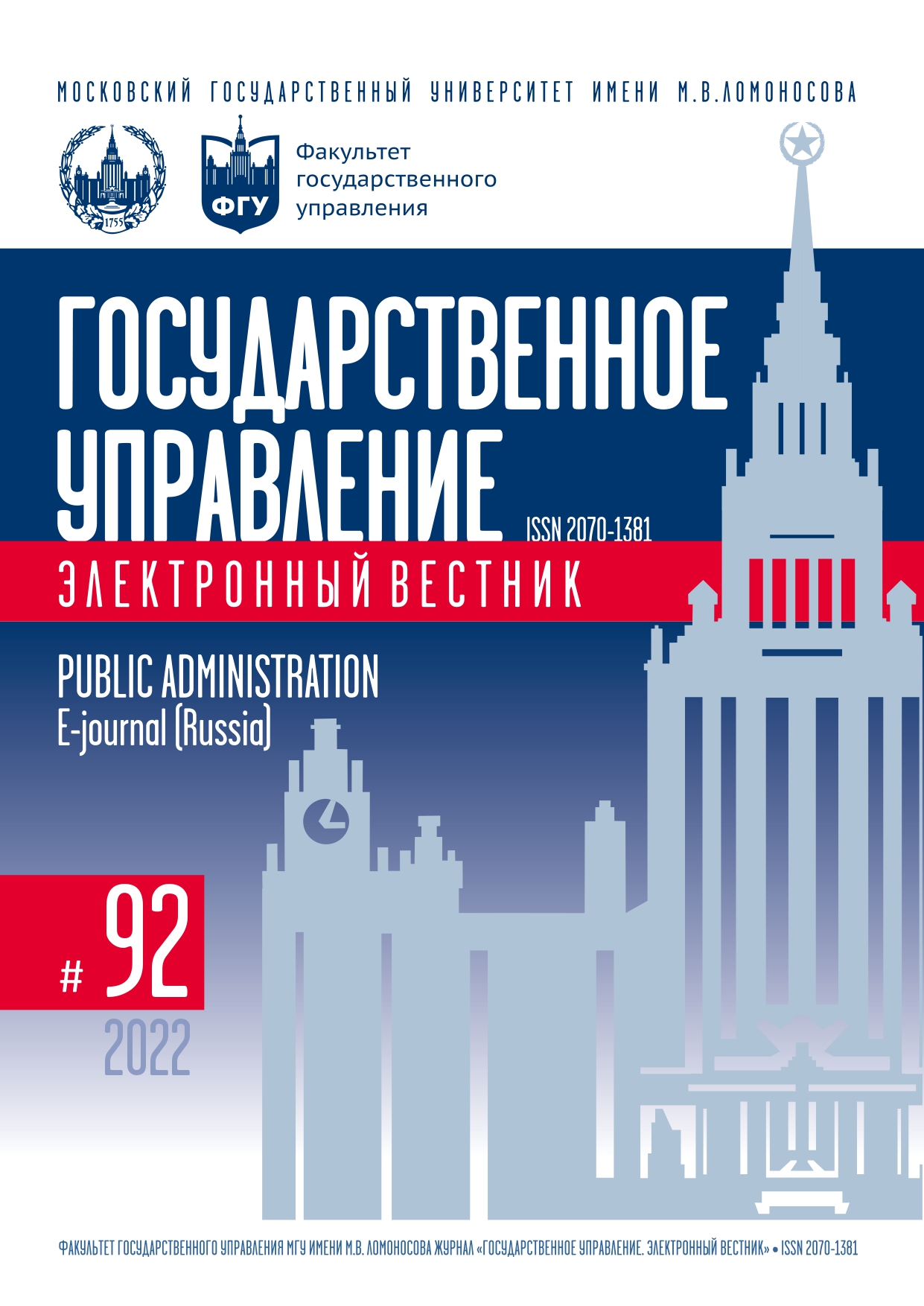Issues of Russian Regions Spatial Development
Keywords:
Spatial development, territorial development, Russian regions, institutional basis for development, spatial aspectAbstract
The problem of institutional support for the regions development includes the presence of a large number of institutions (formal and informal), which rather than interacting with each other exclude the possibility of building a common institutional system of regional development, which determines the relevance of the study. The aim of this study was to analyze the spatial aspect of regions development, reflected in one element of the formal institution of spatial development — territorial planning schemes for the constituent entities of the Russian Federation. The subject of the study is the territorial planning schemes of the constituent entities of the Russian Federation, including master plans for cities of federal significance. The content analysis of regional territorial planning schemes showed that the spatial aspect appeared in these documents even before the development of the Strategy for Spatial Development of Russia. At the same time, there are significant differences in the used conceptual apparatus of territorial and spatial development, as well as in approaches to filling both the provisions of the territorial planning scheme and, to a greater extent, justification materials, despite the existing requirements reflected in the Urban Planning Code. The identified problem reflects the need to develop methodological requirements for filling in the documents of territorial planning schemes of regions in order to simplify interaction in the placement of objects on their own and in border areas with neighboring territories, including infrastructural ones.
References
Боулз С. Микроэкономика. Поведение, институты и эволюция. М.: Изд-во «Дело» АНХ, 2010.
Зобова Л.Л. Территория и пространство: близнецы или двойняшки? // Региональная экономика: теория и практика. 2008. № 33. С. 6–12.
Клейнер Г.Б. Институты: определение, признаки и направления исследования // Управление. 2016. № 3. С. 5–11. DOI: 10.12737/21290
Колоткин М.Н. Территория и пространство в условиях глобализирующегося мира // Интерэкспо Гео-Сибирь. 2015. Т. 6. № 2. С. 8–12.
Леонтьева Л.С., Проскурнова К.Ю. Пространство и территория: направления государственной политики развития // Проблемы теории и практики управления. 2021. № 10. С. 25–37. DOI: 10.46486/0234-4505-2021-10-24-37
Проскурнова К.Ю. Институциональные основы регионального развития. Ярославль: ООО «ПКФ «СОЮЗ-ПРЕСС», 2019.
Третьякова Л.А., Астахин А.С. Пространственное развитие территорий: состояние, тенденции, комплексный подход к оценке дифференциации регионов (территорий) // Вестник университета. 2020. № 4. С. 107–114. DOI: 10.26425/1816-4277-2020-4-107-114
Boddy M., Hickman H. The Demise of Strategic Planning? The Impact of the Abolition of Regional Spatial Strategy in a Growth Region // The Town Planning Review. 2013. Vol. 84. Is. 6. P. 743–768. DOI: 10.3828/tpr.2013.38
Lau M. Sectoral Integration and Meta-Governance: Lessons beyond the ‘Spatial Planning’ Agenda in England // The Town Planning Review. 2014. Vol. 85. Is. 5. P. 617–637.
Lennon M., Scott M. Delivering Ecosystems Services via Spatial Planning: Reviewing the Possibilities and Implications of a Green Infrastructure Approach // The Town Planning Review. 2014. Vol. 85. Is. 5. P. 563–587.
Shaffer J.D. Institutions, Behavior and Economic Performance; Comments on Institutional Analysis // Department of Agricultural Economics, Michigan State University. Staff Paper. № 95–52. 1995.
Taylor N. What Is This Thing Called Spatial Planning? An Analysis of the British Government’s View // The Town Planning Review. 2010. Vol. 81. Is. 2. P. 193–208. DOI: 10.3828/tpr.2009.26

